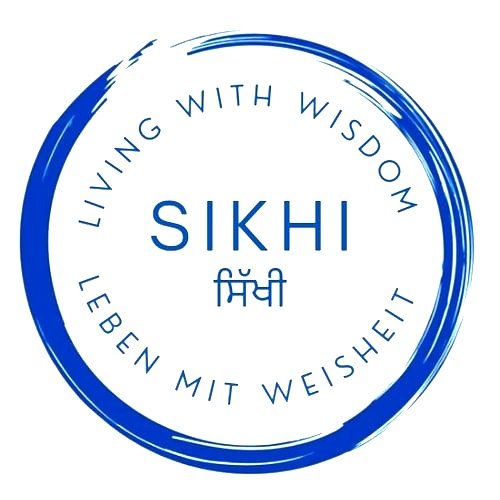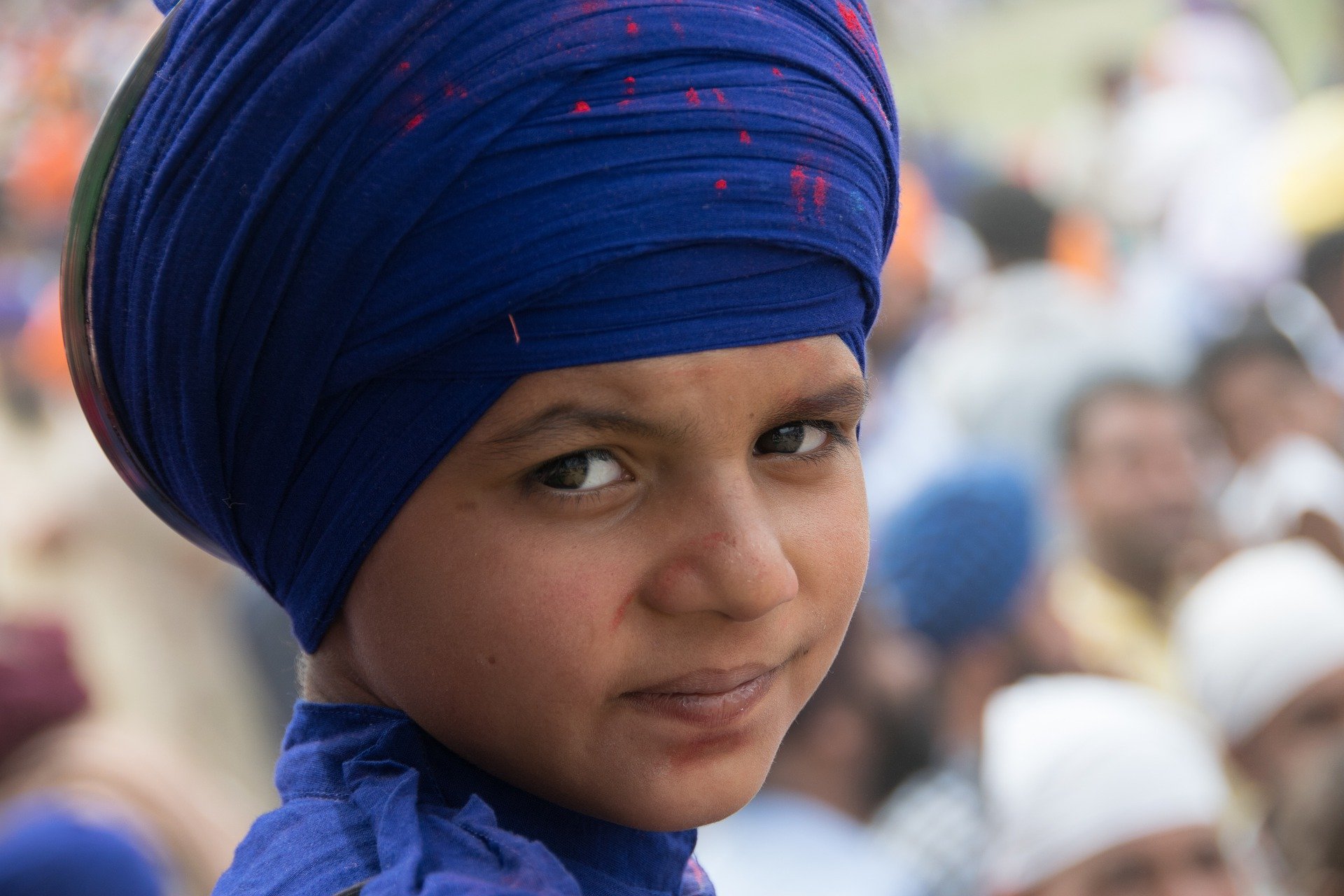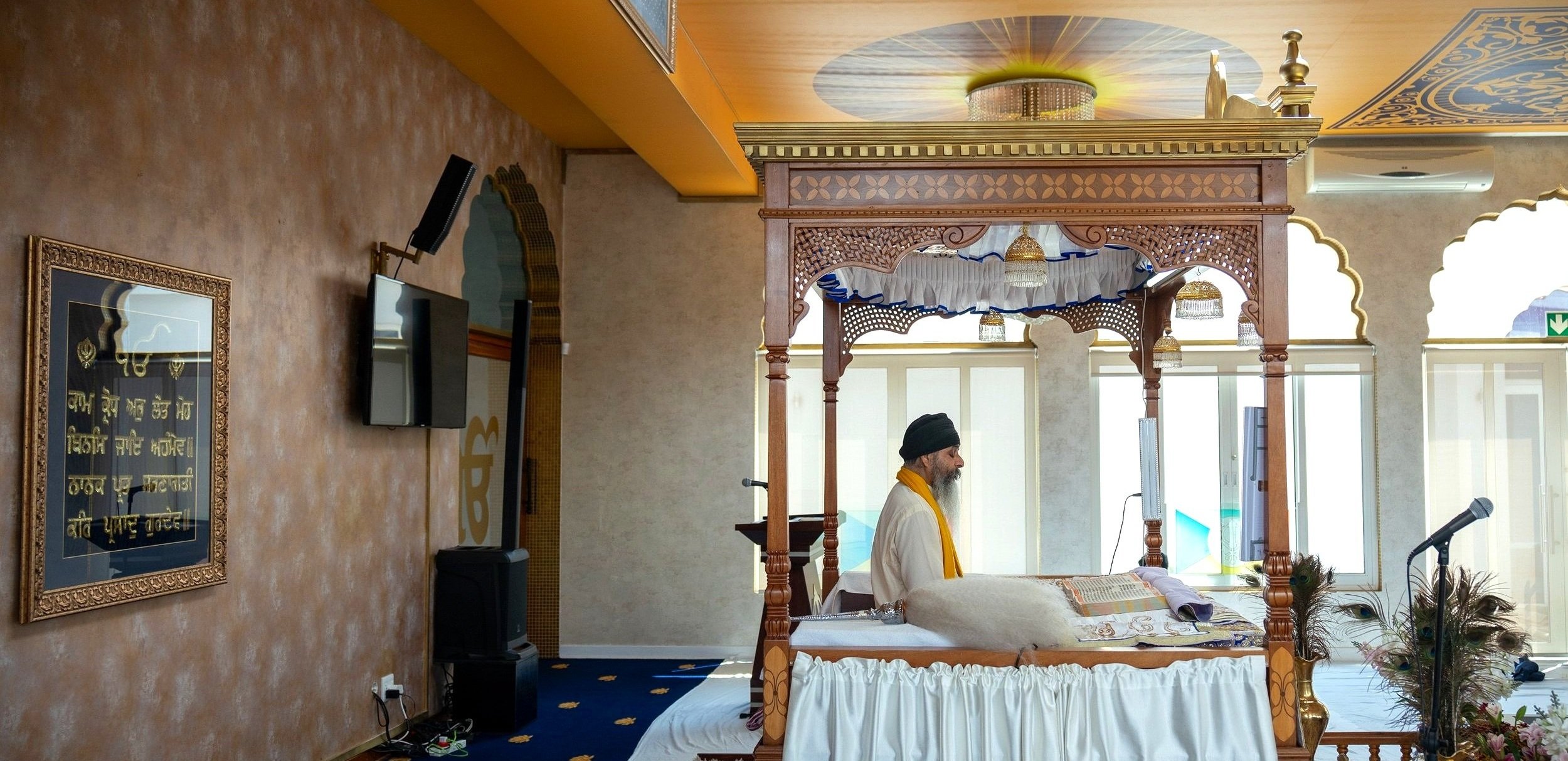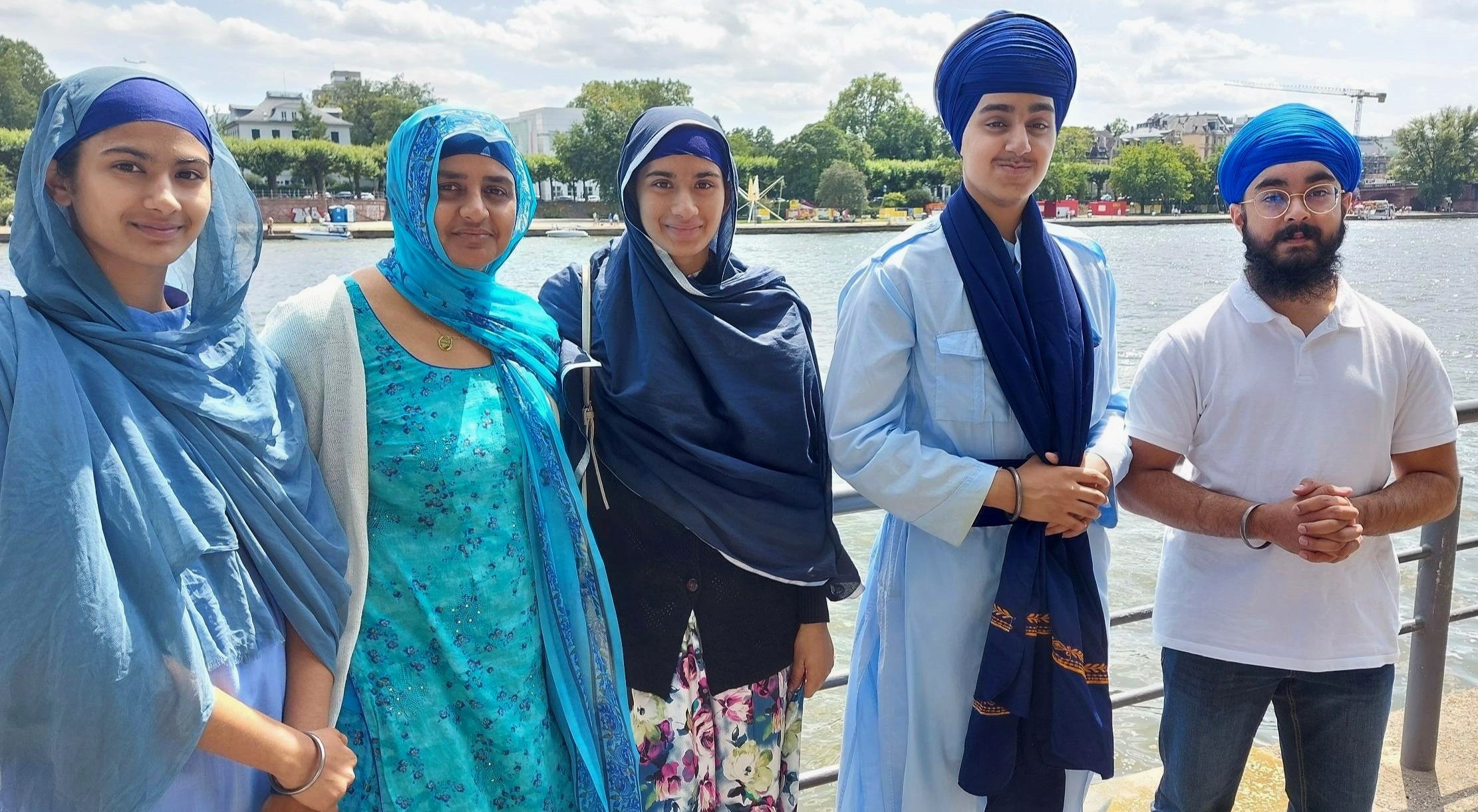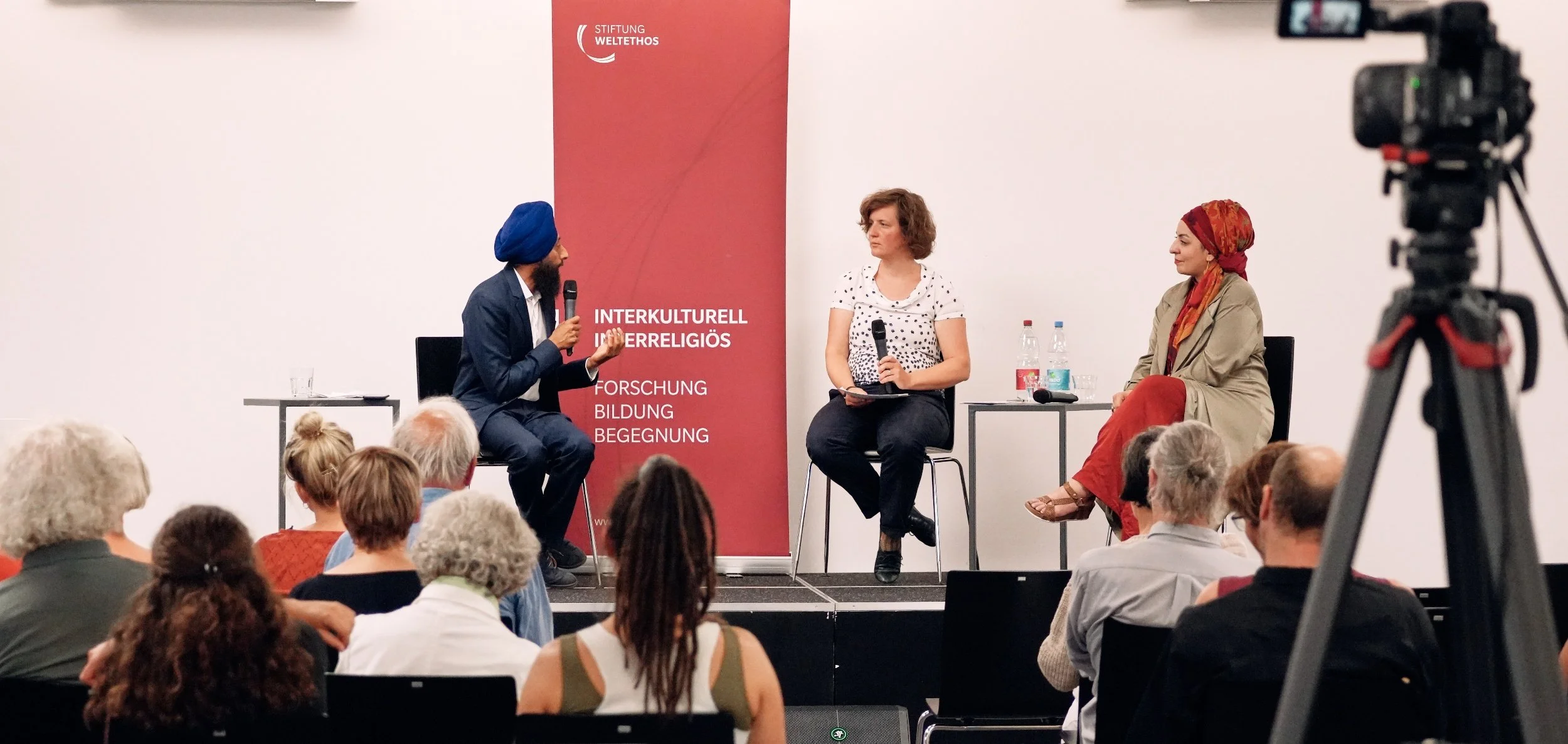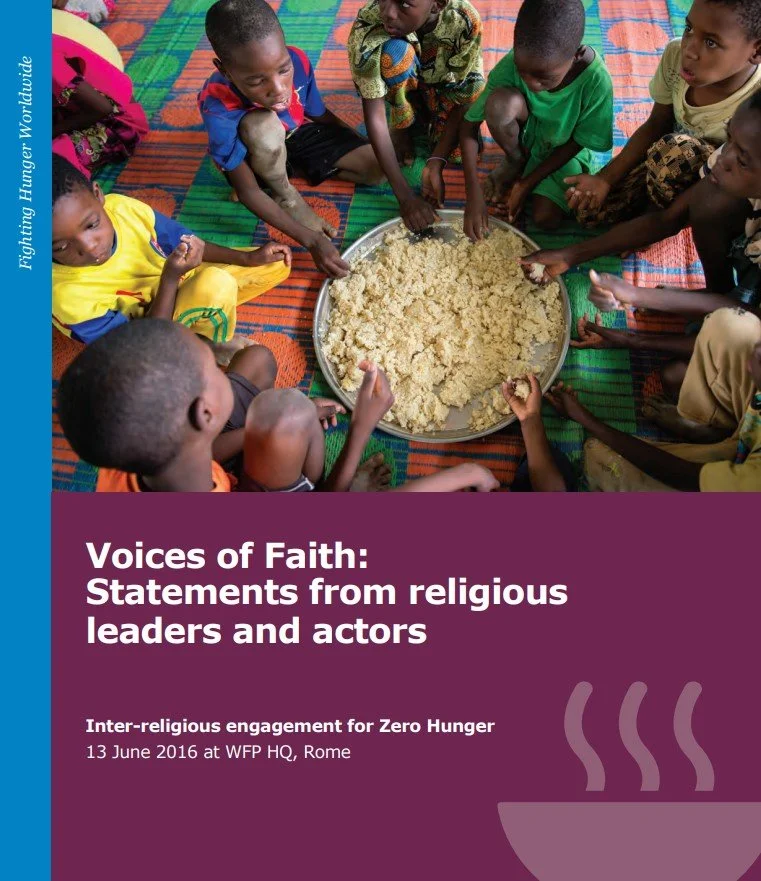Instagram @SikhiCouncil
Featured Articles
Sikhi: Living with Wisdom
Sikhi (Sikh religion, Sikhism), the journey of life-long learning, evolved in the Panjab region from the 15th century onwards. This young world religion has unique traditions, including its own poetic script-language (Gurmukhi), naming conventions, and devotional recitation style. Sikhi draws on timeless spiritual wisdom (Gurmat) revealed to over 30 Enlightened Ones, which has been preserved until today (Gurbani). It inspires around 25 million Sikhs worldwide, and 35,000 in the German-speaking regions. Sikhi views all sentient beings as part of one family. Its wisdom helps reflecting upon childhood imprints and estrangement from our heart. Gurmat thus paves the way to distinguish natural needs from desires, embrace a cyclical worldview, transcend the diaspora of ephemerality, heal, and return to our common spiritual homeland - while living a dignified, ethical, healthy, and spiritual life in harmony with nature and the Divine.
About us
The SikhiCouncil is an independent voluntary initiative. We provide insights into Gurmat, timeless spiritual wisdom that has been handed down in writing (Gurbani). It enables creating unity while embracing diversity. Based on Gurmat, which is at the heart of the fifth largest world religion Sikhi, we foster respectful exchange among and with Sikhs of the younger generations as well as interfaith dialogue. We are committed to peaceful coexistence and Freedom of Religion and Belief (FoRB). In line with the UN 2030 Agenda (SDGs), we focus on well-being, education, environmental protection, peace, and global partnerships. We are available as a point of contact for the media, educational and healthcare institutions, and government agencies. Our partners include the Global Ethic Foundation (Stiftung Weltethos), the Foundation against Racism, and SikhTeachings.
Basics of Sikhi
-
The Sikh religion (also known as Sikhism) is originally called Sikhi, Gurmat, and Sikh Mat. It is one of the youngest world religions. At the center of Sikhi is unifying yet pluralistic timeless wisdom that has been revealed to over 30 Enlightened Ones. The original insights of these Wise Ones, who descended from different socio-cultural backgrounds, have been passed down in the script-language Gurmukhi. Timeless spiritual wisdom preserved in written form is called Gurbani. Internalizing this wisdom and bringing it to life is utmost important for Sikhs.
At the core of Sikhi is love, lifelong learning, and being in tune with the Divine Will (Hukam) through spiritual wisdom (Nam). Sikhs consciously strive to live a healthy, sincere, dignified, humble, welfare-oriented, creative, and fearless life, deeply respecting nature with a cyclical worldview.
Sikhs focus on self-exploration and the impact of their thoughts and actions. This involves being guided by wisdom in everyday life and transcending the ego. Sikhs surrender to divine grace (Gurparsad) in oder to transcend the diaspora of ephemerality, end the cycle of birth and death, reach enlightenment, and return to the original spiritual homeland of all enlightened souls (Allah, Hari, Kartar, Khudae, Parmesar, Par Brahm, Ram, Sach Khand, Sukh Sagar, Wahe Guru).
Dogmatic and dualistic views, a creed, the worship of an externalized God, ritualized practices, pilgrimages, fasting, celibacy, indulgences, monasticism, superstition, esotericism, and specific meditation or yoga techniques are alien to Gurmat.
-
The insights of the Enlightened Ones have been handed down in the foundational work known as the (Adi) Guru Granth Sahib (GGS). This 1430-page collection of the original writings is considered by Sikhs as the highest source of spiritual inspiration and serves as an ethical compass. The influential Wise One Gur Nanak, the first of the lineage of ten direct Enlightened Ones, was born in Nankana Sahib in 1469. He initiated the collection of the revealed insights. He consciously included the insights of numerous other Wise Ones like Bhagat Kabir and several Bhatt.
The tenth Enlightened One Gur Gobind Singh was born in 1666. In 1708 he completed the canonization which had been significantly advanced by Gur Arjan. The final oeuvre, the result of a unique collaboration of over 200 years, is commonly known as (Adi) Guru Granth Sahib. Thus, Gur Gobind Singh ensured that the insights revealed to the Wise Ones could be preserved and passed on from generation to generation.
The writings of Gur Gobind Singh are included in the oeuvre known today as Dasam Granth. They are central to the communal recitations and initiation (Khande Di Pahul) of a role-model Sikh into the order of the Khalsa, the pure ones. Sikhs of this order can be recognized by uniform characteristics, the Five Kakar.
Today, Sikhs offer increasingly decentralized services and organize podcasts and (online-)workshops for the younger generations to pass on the timeless wisdom which has been passed on to them.
-
Sikhi is a unique way of life with a distinct script-language (Gurmukhi), divine poetry (Gurbani), musical tradition and defensive art (Shastar Vidya, Gatka).
The names of the Sikhs also bear a distinctive feature. As a sign of siblinghood, Sikh women use the surname Kaur (princess) and men the name Singh (lion). Where a common surname is required for legal reasons, Sikhs use an inspirational word from Gurbani, expressing a virtue of character.
Also, the appearance of Sikhs is unique. They keep their hair uncut and cover it. In this way, they express dignity, naturalness, humility and respect. Traditionally, male Sikhs are recognized by their turban (Dastar) and uncut beard. Women usually cover their head with a scarf, some wear a turban. Small Sikh boys use various types of a cloth (Rumal or Patka) to cover the hair tied into a chignon in the middle of the head. The head covering is tied daily. The topknot covers the sensitive area of the fontanel. The turban provides protection from heat, cold and head injuries.
Role-model Sikhs who are accepted into the Khalsa order are not elected but selected based on their character and wisdom. They are initiated through a ceremony known as Khande Di Pahul and are recognizable by five uniform characteristics, the Panj Kakar:
Uncut and covered hair - symbolizes naturalness, devotion, dignity and virtuous life (Keski, Kes)
Wooden comb - symbolizes purity; it is used to comb the hair daily (Khanga)
Iron bangle - stands for courage; several large bangels together were worn in defensive battles to protect oneself against sword blows and other attacks (Karha)
Cotton shorts - symbolizes strength of character and responsibility; they cover the lower body and allow to move comfortably (Kashaira)
Small sword - symbolizes the grace and power of wisdom to eliminate the bad and preserve the good; swords have been worn for self-defense since the time of Gur Hargobind, after Sikhs have been increasingly persecuted and attacked (Kirpan)
-
The spiritual and ethical oriented Sikh way of life developed between the 15th and 17th centuries in northern India. Despite repeated oppression and persecution throughout history, Sikhs have been able to preserve Sikhi’s wisdom and traditions through devotion, trust and optimism.
Approximately 25 million people worldwide affiliate with Sikhi. Its followers are called Sikhs, disciples of wisdom. The majority of Sikhs are based in the Panjab region of northern India, where they originated. Nevertheless, Sikhs today live well integrated in all parts of the world. In Germany, Austria and Switzerland, Sikhs have settled especially since the 1980s. A total of around 35,000 Sikhs live in the German speaking regions.
Diligence, joie de vivre, and resilience have helped Sikhs establish communities on all continents despite ongoing experiences of discrimination. Increasingly, Sikhs can be found in leadership positions.
-
Despite recurring oppression throughout history and experiences of discrimination and violence, Sikhs have not only preserved the wisdom which has been passed down to them. They also stand alongside those in need of help. A tradition that has evolved from Sikhi’s public welfare orientation is Langar. It is a reminder that the soul needs spiritual wisdom, the body pure food, and the needy once support, regardless of their background. Sikhs provide free meals in their communities to all visitors, especially those in need, such as the homeless people and refugees. This service puts across the message that all people deserve equal dignity, regardless of their background or economic condition. Sikhs also support victims of famine and other disasters by providing free food, necessary goods (such as oxygen tanks and masks in the Corona pandemic), and spiritual care.
Worldwide, Sikhs are active in interfaith dialogue, peace and education work. They engage in environmental protection activities and in initiatives against racism. They oppose injustice, discrimination of minorities, racism and other forms of fanaticism, abuse of power and exploitation of religion for political and business purposes. This attitude is symbolized above all by the community of the pure ones called Khalsa.
Recitations that touch our heart
Wisdom touches us. Blossoms intuitively. We carry it into life. With every breath. With every recitation.
ਲੋਗੁ ਜਾਨੈ ਇਹੁ ਗੀਤੁ ਹੈ ਇਹੁ ਤਉ ਬ੍ਰਹਮ ਬੀਚਾਰ ॥ GGS, 335, Bhagat Kabir
Internalising wisdom is a central part of being a Sikh. Spiritual wisdom inspires us to start the day with harmony and joy, and to direct our actions to the benefit of humankind. More…
ਫਰੀਦਾ ਜੇ ਤੂ ਅਕਲਿ ਲਤੀਫੁ ਕਾਲੇ ਲਿਖੁ ਨ ਲੇਖ ॥ ਆਪਨੜੇ ਗਿਰੀਵਾਨ ਮਹਿ ਸਿਰੁ ਨੀਵਾਂ ਕਰਿ ਦੇਖੁ ॥੬॥ GGS, 1378, Bhagat Sheikh Farid
If you are wise, you humbly look within, save your soul from black stains, and let it shine in purity.
Sikhs worldwide
Global breakdown of the approximately 25 million Sikhs in 2023 by selected countries based on estimates from publicly available data.
- India: 22 Mio.
- USA: 0.7 Mio.
- Canada: 0.7 Mio.
- United Kingdom: 0.5 Mio.
- Australia: 0.2 Mio.
- Malaysia: 0.1 Mio.
- Italy: 70.000
- Austria, Germany, Swiss: 35.000
- India: 22 Mio.
- USA: 0.7 Mio.
- Canada: 0.7 Mio.
- United Kingdom: 0.5 Mio.
- Australia: 0.2 Mio.
- Malaysia: 0.1 Mio.
- Italy: 70.000
- Austria, Germany, Swiss: 35.000
Learning and growing together
Find inspiration through wisdom-oriented SikhiCamps and online workshops for children and youngsters. Our cooperation partner SikhTeachings offers classes in Gurmukhi and English every Sunday at 9:15 AM and 10:15 AM CET.
Recommendations
If we listen, read and watch carefully, we won't rust. We present listening, reading and film tips on our focus topics well-being, education, environmental protection, peace and justice. More...
Volunteer with us!
If you want to support us, please contact us.

Soul Food
